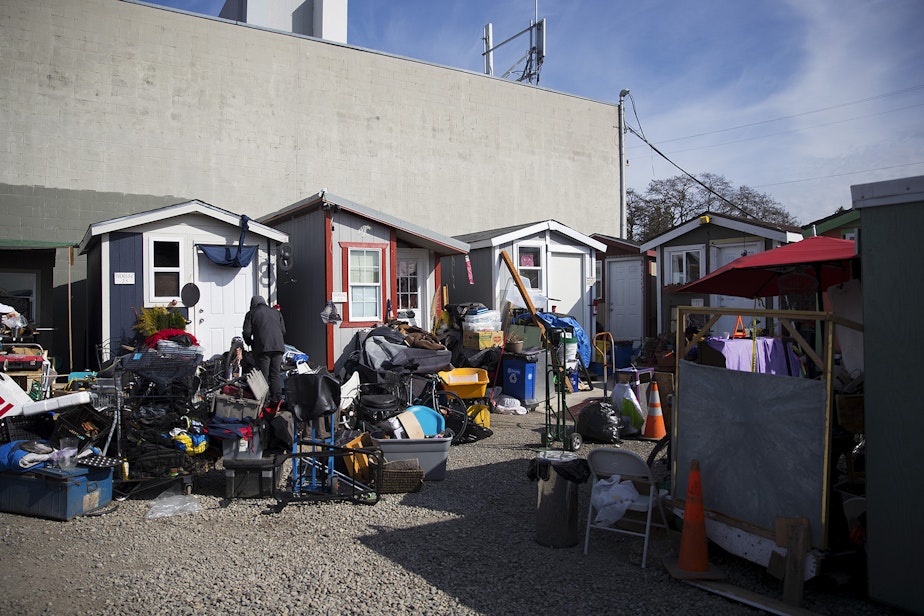Deadline looms for closure of controversial tiny house village

Remaining residents at a tiny house village in North Seattle have just under a week to move out.
The permit for the Licton Springs village on Aurora Avenue expires at the end of March. City officials announced last year that they would not be extending the permit or relocating the camp.
This is the first city-funded village to close since Seattle started using authorized encampments as part of the strategy to address homelessness.
Only seven people remain living at the Licton Springs site, which once housed more than 50 residents, according to Josh Castle with the Low Income Housing Institute (LIHI), the group that runs the village.
Castle said they hope to have all seven residents moved out by the March 31 deadline.
"They're all getting into either housing; or in some cases other villages only because they need to get their documents or their ID together in order to transition into housing,” he said.
The Licton Springs village, one of nine tiny house villages currently operating in the city, has been controversial.
Sponsored
It was the first city-funded camp to allow drug and alcohol use on site and, while it provided beds for some of the hardest to serve cases in the community, it also received vocal opposition from some neighbors.
With the deadline fast approaching, the fenced lot where the camp sits was quiet on a recent Friday. The few remaining residents trickled in and out of a large tent which serves as a kitchen.
Whiteboards in public areas displayed a countdown to the closure and a reminder for people to be packed and ready to go.
A large green dumpster sat in the middle of the lot, waiting to be filled with those belongings people decided not to take with them – an old couch, some broken electronics, a rusty cabinet.
The closure of the Licton Springs site comes as at least two other villages in Seattle also face expiring permits. City officials have yet to say what the plans are for those sites. However, it seems unlikely that the city will take a step back from the use of villages.
Sponsored
In 2018, the city invested $4.2 million in villages, according to city documents. Throughout the year, 135 people moved from villages across the city into permanent housing.
Once all residents have moved out of the Licton Springs site, most of the tiny houses will be moved to other villages, according to Castle.
In the future, the property on Aurora Avenue that housed the village will be converted into more than 100 units of low-income housing.




